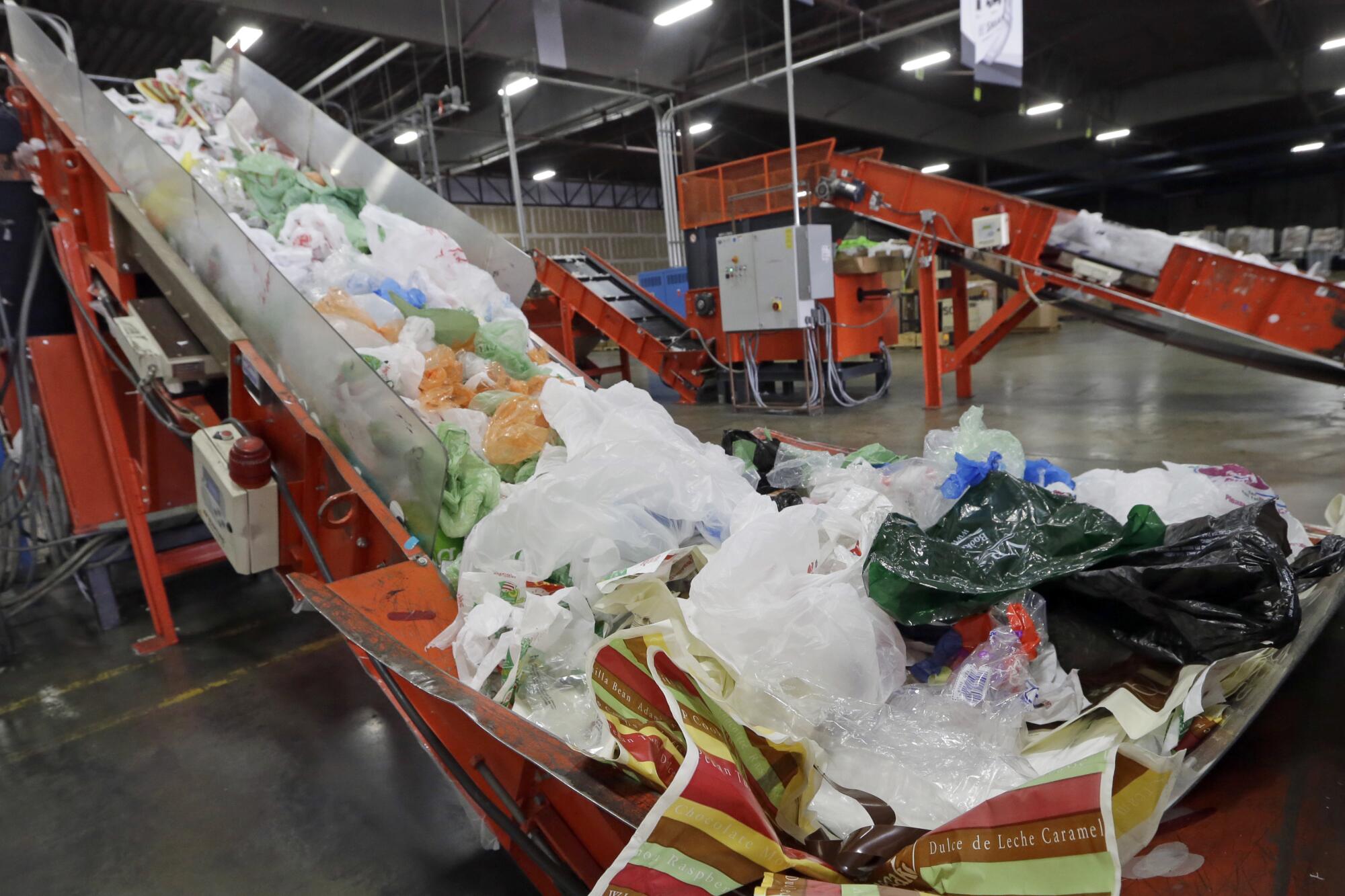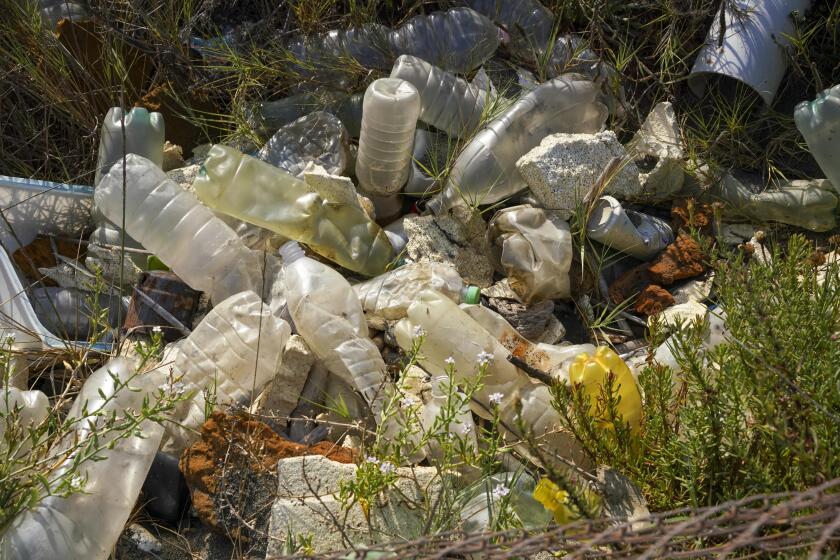
- Share via
Roughly 10 years after California tried and failed to ban plastic bags at grocery stores, state lawmakers have passed a law that they say will forever end the choice of “paper or plastic” in checkout lanes.
“Instead of being asked do you want paper or plastic at checkout, consumers will simply be asked if they want a paper bag,” said state Sen. Catherine Blakespear (D-Encinitas). “This easy change eliminates plastic bags from the point of sale and helps California significantly reduce the plastic waste that is contaminating our environment and waters.”
Blakespear and Assemblymember Rebecca Bauer-Kahan (D-Orinda) had introduced identical legislation — Assembly Bill 2236 and Senate Bill 1053 — that sought to close the loophole that allows grocery stores to offer “reusable” plastic bags at the checkout line for a small fee. The legislation was approved Wednesday and now goes to Gov. Gavin Newsom’s desk for signing.
Aggressive and impactful reporting on climate change, the environment, health and science.
Earlier this year, the consumer advocacy group CALPIRG released a report showing that 157,385 tons of plastic bag waste was discarded in California in 2014, and that by 2021, the tonnage of discarded plastic bags had skyrocketed to 231,072 — a 47% jump. Even accounting for an increase in population, the number rose from 4.08 tons per 1,000 people in 2014 to 5.89 tons per 1,000 people in 2021.
The reason for the increase, experts say, is that a 2014 law that aimed to ban plastic bag use allowed grocers to offer customers thick, heavier plastic bags that could theoretically be reused after purchase. In reality, however, those bags found little use after customers unloaded their groceries at home.
Ten years after California passed landmark legislation to reduce plastic bag use, the tonnage of discarded bags has skyrocketed. What happened?
“So on average, people use a plastic bag for 12 minutes to take their groceries home, and then it remains in our environment for hundreds of years, breaking down into microplastics and polluting our soils and our waterways and our own human body,” Blakespear said at a news conference this week.
The new legislation was backed both by environmental groups and the California Grocers’ Assn. — an uncommon alliance, but one that likely helped the bill sail through the Legislature.
“We’ve been involved in this policy,” Louis Brown, the trade group’s representative, said at the same news conference. “We’ve seen our businesses transition to be more environmentally sustainable. We’ve seen our customers transition and so we believe come Jan. 26, when only paper is available at the point of sale, our members will support it. Our customers will support it.”
Indeed, most Californians say that plastics and marine debris are a problem, according to polling by the Public Policy Institute of California.
The new law, if signed by the governor, will go into effect on Jan. 1, 2026. The law focuses on checkout bags — not bags used to hold produce or wrap food that could cause contamination, such as meat. In addition, beginning Jan. 1, 2028, the definition of a recycled paper bag would change from one made from 40% recycled material, to one with more than 50% recycled material.
President Biden has announced a commitment to phasing out the purchasing and use of single-use plastics across the federal government.
Other plastic- and waste-related bills were also passed this week, including one that would ban the use of various “sell by” labels on food, instead requiring that the language and meaning be standardized so consumers understand what it means.
“Phrases like ‘enjoy by,’ ‘expires on,’ ‘sell by’ — and even, at times, just a random date with no label at all — offer little insight to consumers on the quality or safety of the food that they are eating,” Assemblymember Jacqui Irwin (D-Thousand Oaks), the author of one of the bills, AB 660, said at a news conference Monday.
The other bill, AB 2214, would require state agencies to begin crafting guidance and language to tackle the growing issue of microplastic pollution.
Petroleum based plastics do not decompose. Instead, they break down over time into smaller and smaller pieces, which researchers have now identified in environments across the globe, as well in the tissues and fluids of animals and humans.
The “goal of it is to strengthen California’s leadership on microplastics,” said Alison Waliszewski, of 5 Gyres, an antiplastic advocacy group, by “empowering” state agencies such as the Ocean Protection Council and give “them more teeth to be able to implement and strategies and make recommendations in a more expedited fashion.”
Toward a more sustainable California
Get Boiling Point, our newsletter exploring climate change, energy and the environment, and become part of the conversation — and the solution.
You may occasionally receive promotional content from the Los Angeles Times.










